-
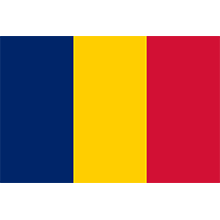 The Republic of ChadThe Republic of Chad is African Parks’ partner in the management of Greater Zakouma Ecosystem, an extensive ecosystem that includes Zakouma National Park and Siniaka Minia Wildlife Reserve, and in the management of the new Natural and Cultural Reserve of Ennedi (NCRE). The Chadian Government, on the advice of The European Union, approached African Parks in 2010 to assume management responsibility of Zakouma to put an end to the ongoing scourge of elephant poaching. The mandate agreement was signed in June 2010, and African Parks commenced management of the park and periphery in October the same year. Abdelkerim Siddick Haggar is the Minister of Environment, Water and Fisheries and Madangah Ngamgassou is the Director of Wildlife.
The Republic of ChadThe Republic of Chad is African Parks’ partner in the management of Greater Zakouma Ecosystem, an extensive ecosystem that includes Zakouma National Park and Siniaka Minia Wildlife Reserve, and in the management of the new Natural and Cultural Reserve of Ennedi (NCRE). The Chadian Government, on the advice of The European Union, approached African Parks in 2010 to assume management responsibility of Zakouma to put an end to the ongoing scourge of elephant poaching. The mandate agreement was signed in June 2010, and African Parks commenced management of the park and periphery in October the same year. Abdelkerim Siddick Haggar is the Minister of Environment, Water and Fisheries and Madangah Ngamgassou is the Director of Wildlife. -
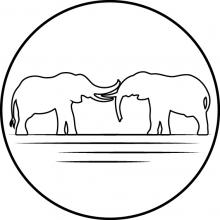 The Elephant Crisis FundThe Elephant Crisis Fund (ECF), a joint initiative of Save the Elephants and the Wildlife Conservation Network, is a flexible and responsive fund that supports the best efforts from the most trusted organisations across the world working to save elephants. Since 2015, the ECF has not only contributed more than US$3.4 million to African Parks, but also expertise on best practices in elephant conservation. This has benefited critical surveillance and intelligence-based protection for some of our most threatened elephant populations in Central, Southern and Western Africa.
The Elephant Crisis FundThe Elephant Crisis Fund (ECF), a joint initiative of Save the Elephants and the Wildlife Conservation Network, is a flexible and responsive fund that supports the best efforts from the most trusted organisations across the world working to save elephants. Since 2015, the ECF has not only contributed more than US$3.4 million to African Parks, but also expertise on best practices in elephant conservation. This has benefited critical surveillance and intelligence-based protection for some of our most threatened elephant populations in Central, Southern and Western Africa. -
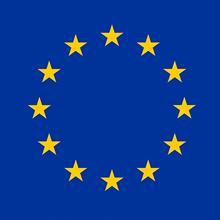 European UnionThe European Union (EU) has been a long-standing funder, first supporting our growth into Central Africa in 2005. Their investment over the years has helped create areas of stability in a volatile region, and has helped attract additional funding and partners. The EU has been critical in managing large landscapes namely the Garamba National Park and its periphery, the Chinko Conservation Area, the Ennedi Natural and Cultural Reserve, the Greater Zakouma Ecosystem and the Odzala-Kokoua National Park. Improved management of those ecological important landscapes through effective park management and governance, safety and security for people and wildlife in respect of their respective rights and opportunities in green sectors for local populations contribute to the EU NaturAfrica’ initiative.
European UnionThe European Union (EU) has been a long-standing funder, first supporting our growth into Central Africa in 2005. Their investment over the years has helped create areas of stability in a volatile region, and has helped attract additional funding and partners. The EU has been critical in managing large landscapes namely the Garamba National Park and its periphery, the Chinko Conservation Area, the Ennedi Natural and Cultural Reserve, the Greater Zakouma Ecosystem and the Odzala-Kokoua National Park. Improved management of those ecological important landscapes through effective park management and governance, safety and security for people and wildlife in respect of their respective rights and opportunities in green sectors for local populations contribute to the EU NaturAfrica’ initiative. -
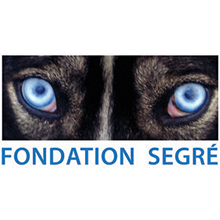 Fondation SegréFondation Segré – a Swiss foundation established in 1996, it is committed to helping protect the biodiversity of our planet through active conservation of threatened species and their habitats, and restoration of degraded ecosystems. Fondation Segré became a strategic funding partner of African Parks in 2016 and has contributed over US$7m to support a range of parks. In 2022, Fondation Segré assisted African Parks in Ennedi Natural and Cultural Reserve, Akagera National Park and the newly added Boma- Badingilo landscape.
Fondation SegréFondation Segré – a Swiss foundation established in 1996, it is committed to helping protect the biodiversity of our planet through active conservation of threatened species and their habitats, and restoration of degraded ecosystems. Fondation Segré became a strategic funding partner of African Parks in 2016 and has contributed over US$7m to support a range of parks. In 2022, Fondation Segré assisted African Parks in Ennedi Natural and Cultural Reserve, Akagera National Park and the newly added Boma- Badingilo landscape. -
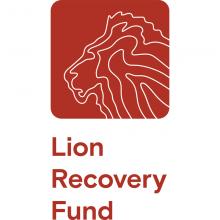 The Lion Recovery FundThe Lion Recovery Fund (LRF), an initiative operated and managed by the Wildlife Conservation Network, is a nimble and flexible fund that invests in the most innovative and effective projects across Africa that can recover lions and restore their landscapes. Since 2017, the LRF has contributed more than US$2.3 million to African Parks. This funding has benefitted eight different African Parks sites, but with a particular focus on several parks in West and Central Africa given the extreme vulnerability of lion populations in those regions. The LRF has invested heavily in African Parks’s Chinko site in Central African Republic, a vast 55,000 km2 wilderness with immense potential for lion recovery.
The Lion Recovery FundThe Lion Recovery Fund (LRF), an initiative operated and managed by the Wildlife Conservation Network, is a nimble and flexible fund that invests in the most innovative and effective projects across Africa that can recover lions and restore their landscapes. Since 2017, the LRF has contributed more than US$2.3 million to African Parks. This funding has benefitted eight different African Parks sites, but with a particular focus on several parks in West and Central Africa given the extreme vulnerability of lion populations in those regions. The LRF has invested heavily in African Parks’s Chinko site in Central African Republic, a vast 55,000 km2 wilderness with immense potential for lion recovery. -
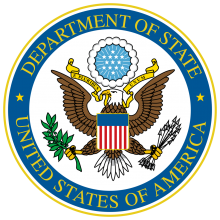 The U.S. Department of StateThe United States Department of State, through the Bureau of International Narcotics and Law Enforcement Affairs (INL), advances good governance, peace and security, which are prerequisites for sustainable economic development and the protection of natural resources. Since 2017, the INL has committed over US$9m to African Parks for critical law enforcement support in protected areas particularly in Chad, the DRC, Malawi, Zambia, the Republic of Congo and Benin. This support has focused on provision of ranger uniforms and patrol equipment, therefore motivating and increasing their efficiency, professionalization of law enforcement operations through refinement of law enforcement standard operating procedures, leadership development, human rights and other core training infrastructure. Intelligence units have been established to guide law enforcement operations and for more robust collaboration with national and regional security agencies, and conservation partners. INL also supports technology development, communication and information management, air surveillance, mobility equipment and canine units, as well as training of national government institutions such as the judiciary to enhance wildlife crime prosecution. Finally, INL is supporting the refinement of the organization’s Human Rights Statement of Principles, to align with the national laws of various governments, refinement of the training curriculum and training of law enforcement teams across the AP portfolio of parks on human rights to minimize violations. These interventions have strengthened parks’ capacity to counter poaching and illegal wildlife trade in these protected areas while promoting regional stability and the security of neighbouring communities. In 2023, INL has awarded AP an additional $2.8m to cover similar interventions in Odzala-Kokoua National Park in ROC, Pendjari National Park and W National Park in Benin, and the Greater Zakouma Ecosystem in Chad, over a period of two years.
The U.S. Department of StateThe United States Department of State, through the Bureau of International Narcotics and Law Enforcement Affairs (INL), advances good governance, peace and security, which are prerequisites for sustainable economic development and the protection of natural resources. Since 2017, the INL has committed over US$9m to African Parks for critical law enforcement support in protected areas particularly in Chad, the DRC, Malawi, Zambia, the Republic of Congo and Benin. This support has focused on provision of ranger uniforms and patrol equipment, therefore motivating and increasing their efficiency, professionalization of law enforcement operations through refinement of law enforcement standard operating procedures, leadership development, human rights and other core training infrastructure. Intelligence units have been established to guide law enforcement operations and for more robust collaboration with national and regional security agencies, and conservation partners. INL also supports technology development, communication and information management, air surveillance, mobility equipment and canine units, as well as training of national government institutions such as the judiciary to enhance wildlife crime prosecution. Finally, INL is supporting the refinement of the organization’s Human Rights Statement of Principles, to align with the national laws of various governments, refinement of the training curriculum and training of law enforcement teams across the AP portfolio of parks on human rights to minimize violations. These interventions have strengthened parks’ capacity to counter poaching and illegal wildlife trade in these protected areas while promoting regional stability and the security of neighbouring communities. In 2023, INL has awarded AP an additional $2.8m to cover similar interventions in Odzala-Kokoua National Park in ROC, Pendjari National Park and W National Park in Benin, and the Greater Zakouma Ecosystem in Chad, over a period of two years.
